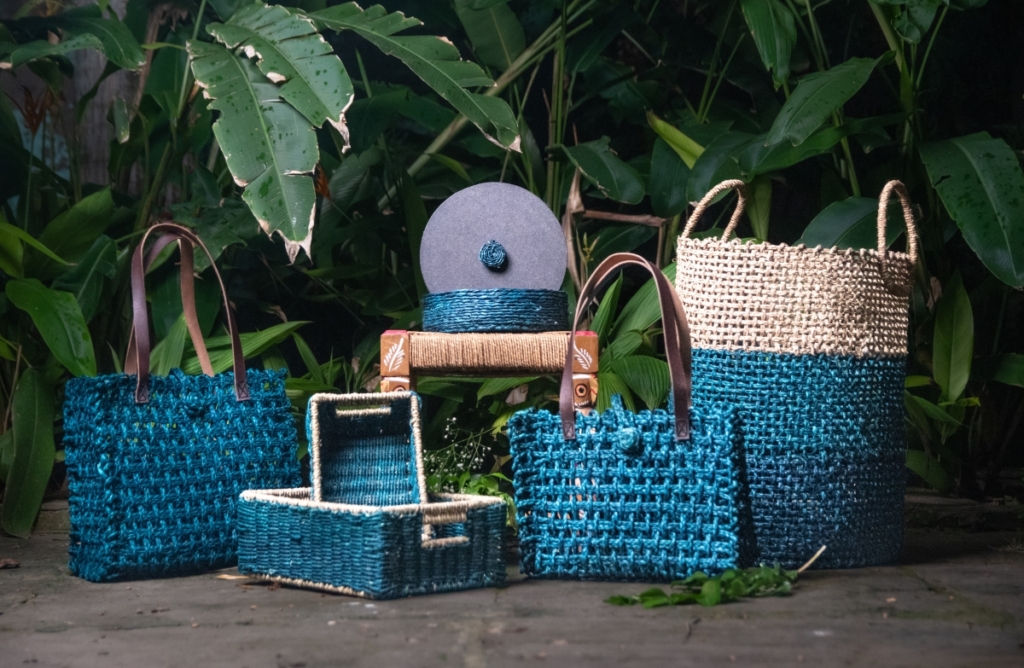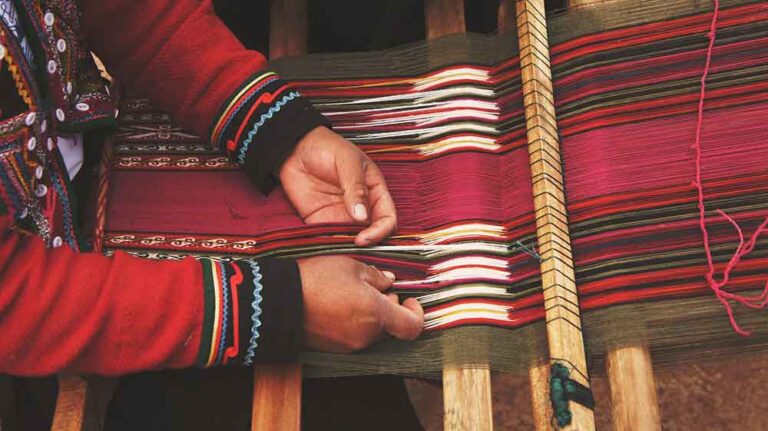In the vibrant landscape of India, where traditions are interwoven with daily life, Payal Nath embarked on an entrepreneurial journey about 20 years ago, that would redefine the way we perceive and appreciate traditional fiber-based products. As the founder of ‘Kadam Haat’, Payal’s vision enabled the creation of a platform to showcase the rich heritage of Indian craftsmanship in addition to uplifting the artisans behind these creations.
A digital marketplace where the stories of artisans come to life, Kadam Haat offers a kaleidoscopic array of traditional crafts, each narrating a tale of cultural richness. Every purchase transcends mere commerce; it becomes a conscious investment in heritage and artisans’ livelihoods.
This article delves into the inspiring journey of an NGO called ‘Kadam’ which started in 2006 and its evolution as a dynamic private partnership brand called ‘Kadam Haat’.
The Birth of 'Kadam'
In the early stages of Kadam’s journey, Payal Nath envisioned a platform that would bridge the gap between the talented artisans scattered across India and a market hungry for authenticity.
Initially aimed at educating the weavers who worked with fibers/grass in various clusters in Odisha and Bengal, ‘Kadam’ was established as an NGO, to cater to the dynamic needs of the consumer. After 10 years in this domain, ‘Kadam Haat’ was created to enable the sale of these handcrafted goods.
Kadam initiated its mission by organizing workshops and training sessions for artisans in the Odisha community in 2006, focusing not only on skill development but also on instilling a business mindset. The early emphasis on women artisans underscored a commitment to gender inclusivity, recognizing the pivotal role women play in traditional crafts. This enabled the small team of Kadam to empower marginalized artisanal craft communities by providing them with not just a means of livelihood, but also a sense of pride in their craft.
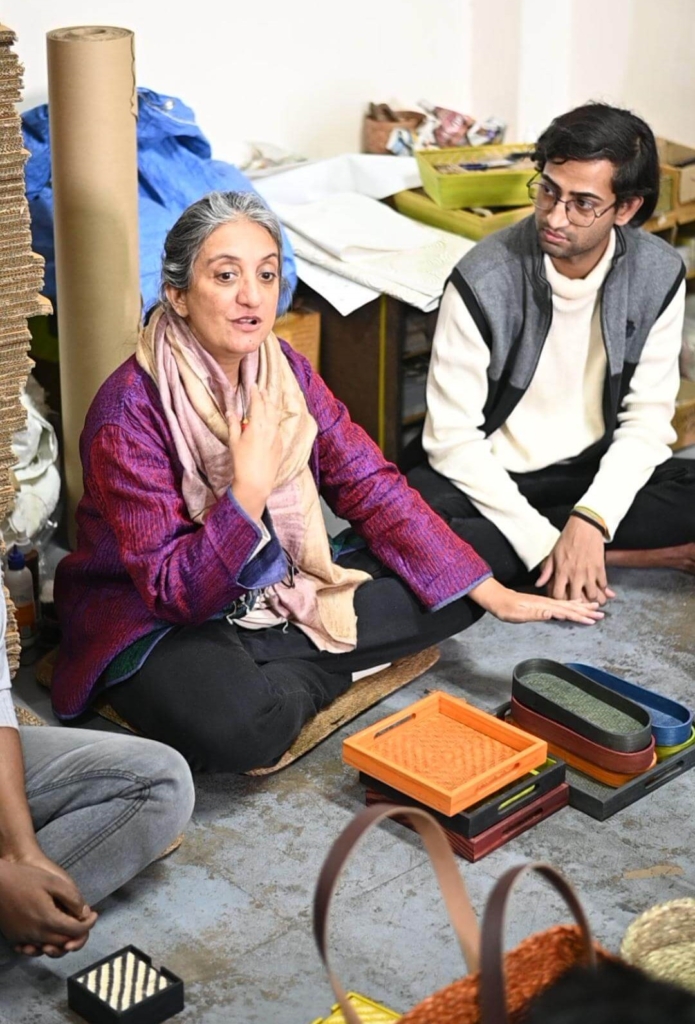
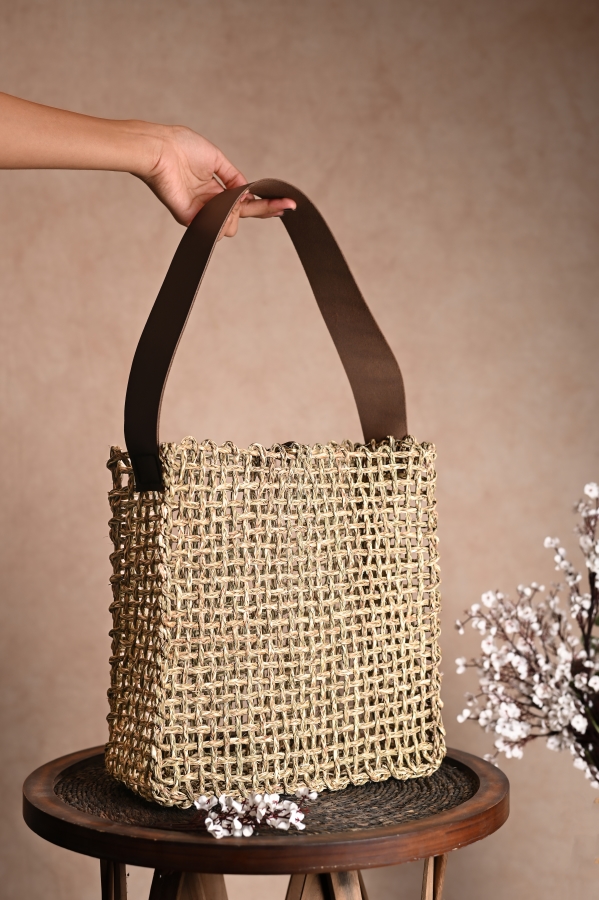
Kadam and 'Kadam Haat'
As Kadam gained traction, it became evident that a more sustainable model was needed to ensure the longevity of traditional crafts. Kadam exists as an NGO and continues to grow as the back-end supply chain organization, and Kadam Haat is a brand that co-exists as a branch-off body created to solve the problem of marketing for trained artisans.
The shift to a private partnership afforded Kadam Haat the flexibility to navigate the ever-evolving landscape of the artisan sector. Under Payal Nath’s leadership, the platform sought to merge the timeless allure of Indian craftsmanship with contemporary market demands, creating a delicate balance between tradition and innovation.
The Grassroots
Payal and her small team worked with women from Odisha who harvested the ‘sabai grass’. Sabai grass exhibits innate antimicrobial and antifungal properties and elevates hygiene levels when translated into the home and dining range. The team went on to work with clusters in West Bengal by 2010, where the grass was growing well. While it may seem like a simple task, that was far from the truth.
Imagine about 20 years back, when people were not that well connected across the globe with mobile phones, the internet, social media, etc. At that age and stage, with very little knowledge about selling handmade products, rural women barely had the means to be financially independent.
It is now, when more and more consumers are moving towards sustainability, that the market for handmade goods is growing. The Indian peninsula is rich in different forms of fiber such as Wicker from Kashmir, Sitalpati and Bamboo from West Bengal, and Sikki from Bihar, to name a few.
Kadam Haat’s range spans a myriad of traditional crafts, including pottery and much more. The platform serves as a treasure trove of authentic, handcrafted goods that mirror the cultural diversity of India. Every product is not merely an object but a conduit for preserving centuries-old techniques.
Empowering Women Artisans
Building on Kadam’s initial focus on empowering women, Kadam Haat continues to provide a platform for women artisans to showcase their skills. The team has trained more than 10,000 artisans in more than two decades. About 600 women from West Bengal and 338 women from Odisha work permanently to make sabai-grass products with Kadam. This commitment to gender inclusivity is a pivotal step toward creating an equitable and sustainable artisan community.
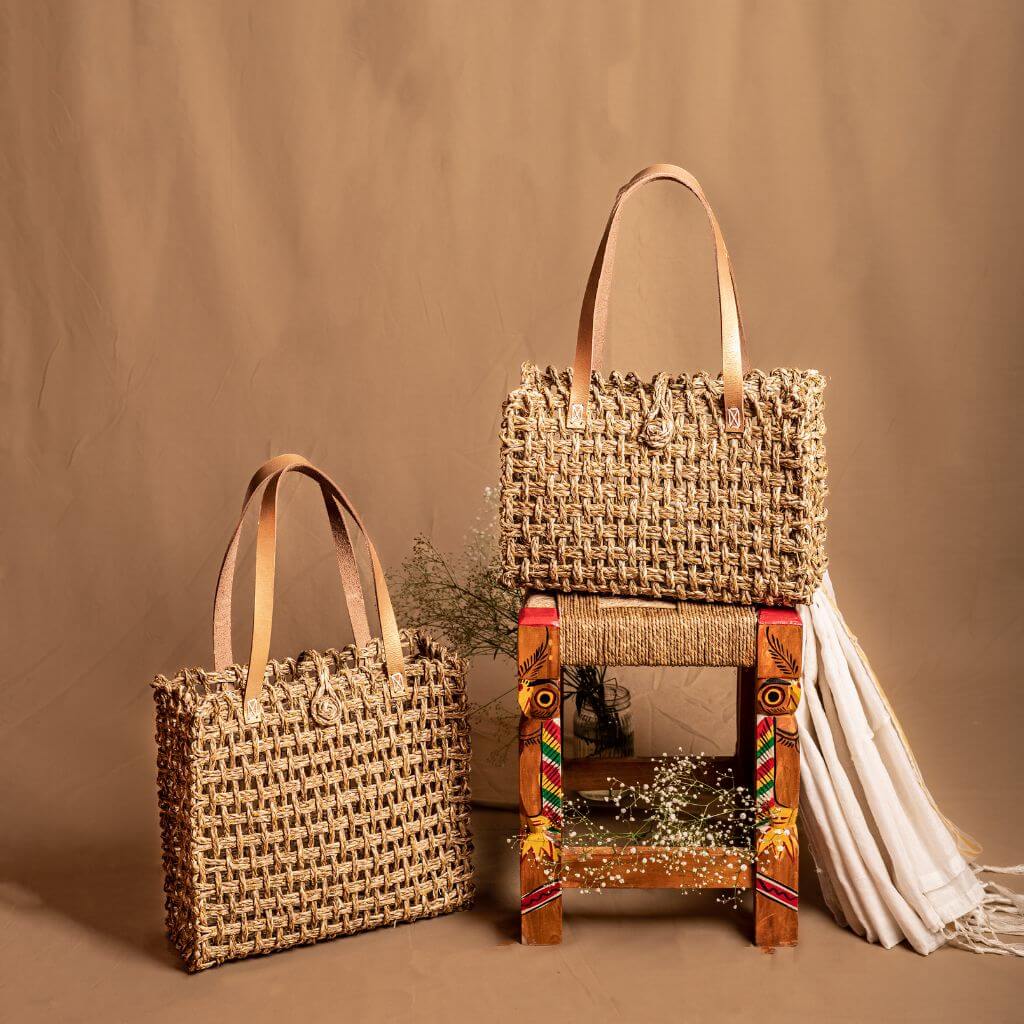
Digital Literacy Among Artisans
The digital divide posed a significant challenge, especially for artisans in remote areas. Kadam Haat responded by providing training and support to artisans in navigating the online platform.
Kadam Haat digitally enabled the artisans to focus on quality and understanding purchase orders, the type of products in demand, etc. with smartphones. This allowed the artisans to be in constant touch with Kadam Haat’s brand production team. The production team has all the information and data of regular monthly orders sold via the brand’s marketing channels such as the Shopify website: www.kadamhaat.com, Amazon, Okhai, Pepperfry, Nykaa, etc. The brand will soon launch its products on Myntra and other online platforms as well.
The artisans do not have to worry about marketing anymore, as Kadam Haat ensures sales and marketing of all products. Many new artisans have now enlisted to become a part of the brand so that they don’t have to hold inventory anymore or wait for exhibitions or direct sales to happen, as they now have a business partner in Kadam Haat. It is very empowering for artisans to have a continuous month-on-month income while working from the comfort of their homes.
The direct access to a broader consumer base has resulted in increased sales and income for the artisans, empowering them economically. This, in turn, has a ripple effect on the overall economic well-being of their communities.
The Complexity and Sustainability of Crafts
Weaving a product from grass isn’t simple and adding a touch of modernity to that is much more difficult and time-consuming!
When in conversation with Payal about the beautiful products made by Kadam Haat, she explains that it isn’t just the product design or colors they concentrate on, but they also try to optimize the process, so that the artisans get the maximum benefit from the sales. For example, the lavender collection, took about 6 months from conception, to finding the type of grass to work with, to the type of products that can be made.
Following global trends, Kadam Haat actively promotes eco-friendly practices and products. The platform encourages artisans to adopt sustainable living in their craftsmanship, fostering environmental responsibility and ensuring the preservation of traditional crafts for future generations.
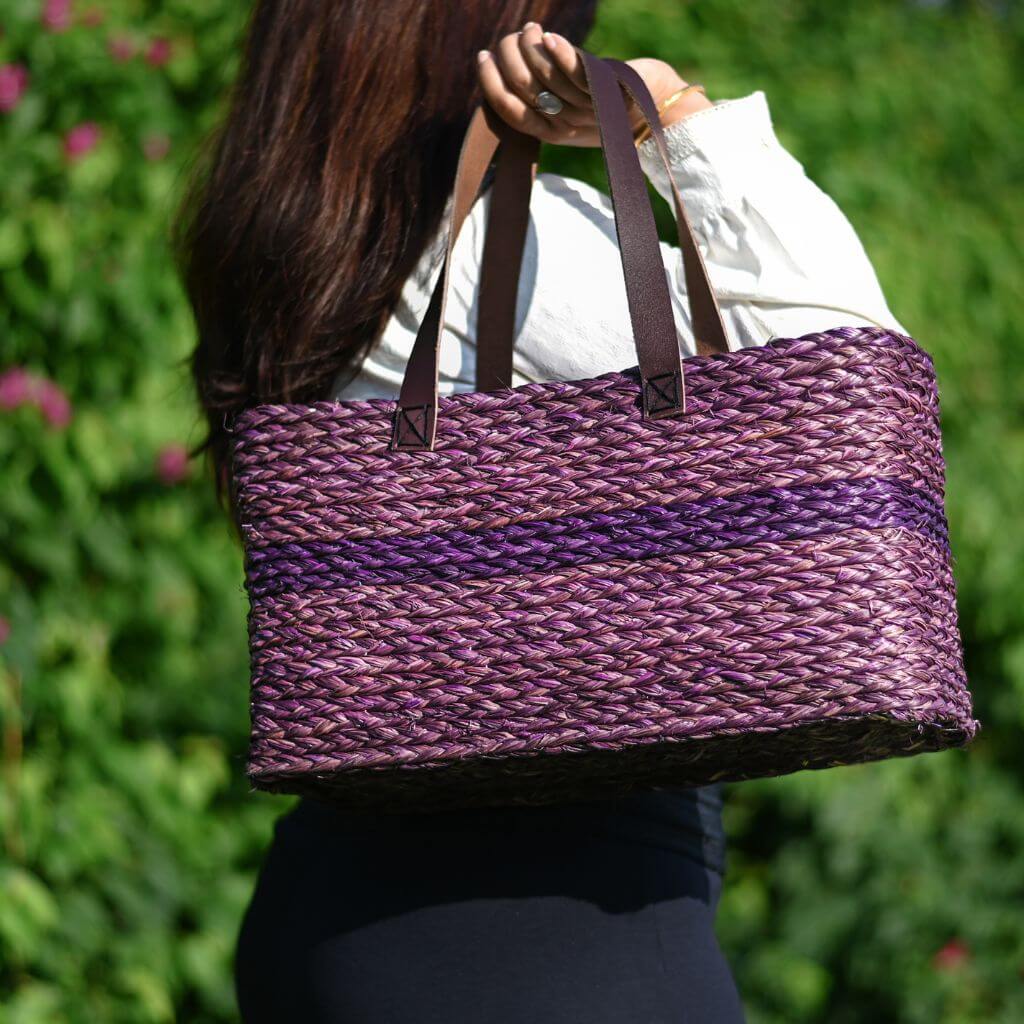
Accolades and Recognition
One of the the biggest achievements for Kadam Haat was serving 26,000 online customers, in the first year after actively going online (with the least carbon footprint), and creating income of up to 2 crores for their basketry makers.
Kadam Haat’s impactful journey has not gone unnoticed; the platform has received numerous awards and accolades from both national and international organizations. Some notable recognitions include:
- Acumen & Ikea Foundation: 100 corporate-ready social enterprises
- Vedica – Women’s Alliance award by Digital Western: award given for social impact brought about in rural India.
- Women of Worth: award given to Payal for crafting joy in lakhs of rural communities’ lives via Kadam Haat
- Amazon: social enterprise of the year 2020 along with mainstream brands like Vadham teas, PeeSafe, etc.
- Women Economic Forum: iconic leader in the field of social impact
- Niti Aayog & UN – Women Transforming India award
Many other awards have been conferred on the brand throughout the years.
Reaching New Heights
To become a D2C e-commerce brand, Kadam Haat required a strong front-end (marketing & sales-related activities and talent). Payal was looking to build that professional team and had the vision to create a global brand from India “Kadam Haat BASKETRY BARN“ in weaving goodness via basketry makers of rural India just like Pottery Barn is known as a classy home brand from the US.
When Hearth Ventures reached out to Kadam Haat, the VC firm had entered the market in the sustainable and handmade sector. Kadam Haat took that opportunity and did an early-stage fundraising with them. The investor brought in the finance needed for the growth plan and a D2C marketing professional on board who later joined Kadam Haat.
Having the backing of an investor empowered Kadam Haat to bring handmade products to mainstream markets, especially at a time when the market segment was cluttered with myriad types of mass-manufactured products.
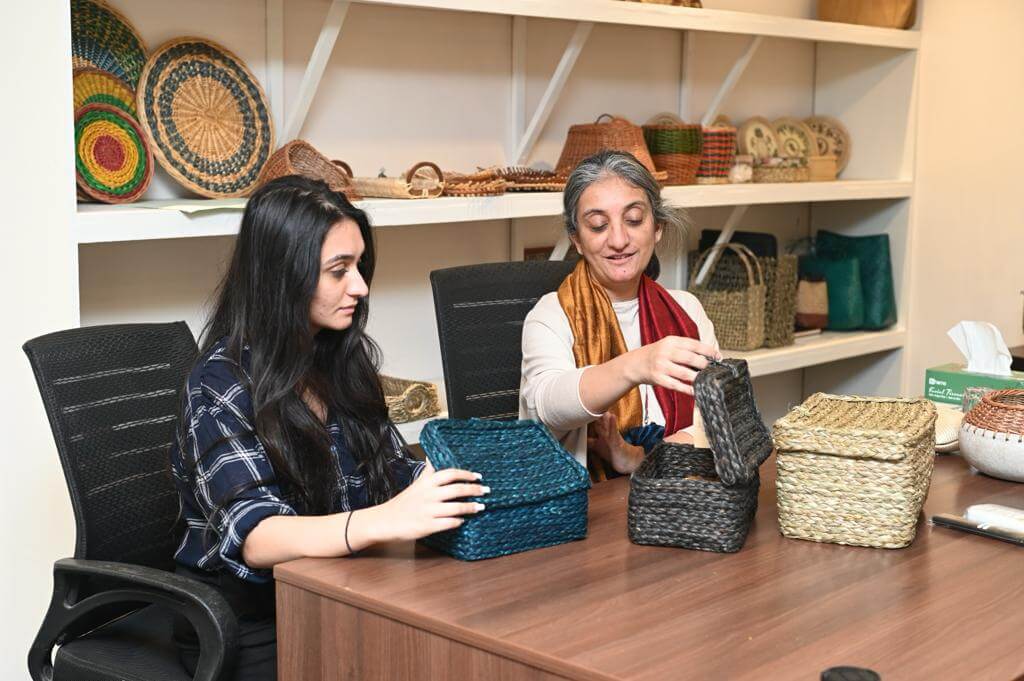
Weaving the Future Ahead
Kadam Haat is looking to serve 50,000 customers in 2024, with a plan to generate Rs.5 crore for artisans in income! The brand is also targetting a wider range of customers (extending their product range for men) and is soon going to be live in 7 marketplaces including one in the USA. The organization is also looking at growth-keeping unit economics intact with a 10-15% growth month-on-month to create a livelihood for 50,000 basketry makers from India by 2040.
Payal says with a net mission-driven professional team – they will achieve their goals and the turnover required to support all the artisans under their wing. Kadam & Kadam Haat have become a beacon of hope for many NGOs and brands, who can work collectively work together to create and weave handmade goodness.
In a world where commerce often overshadows craftsmanship, Kadam Haat stands as a beacon, a testament to the transformative power of entrepreneurship when guided by a commitment to preserving cultural heritage and empowering communities. Payal Nath’s journey, intertwined with India’s artisanal crafts legacy, reflects the possibility of a future where tradition and innovation coalesce, creating a sustainable living and vibrant ecosystem for generations to come.
Author: Maithili Rao
Maithili Rao is an engineer turned marketer. She is a Digital Marketing professional with more than 5+ years of experience working with various startups. Maithili enjoys interacting with dynamic individuals and writing about them, and the real-world connections; that matter the most in this day and age.
